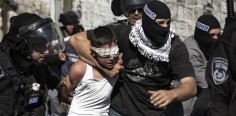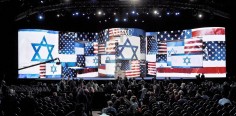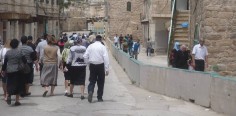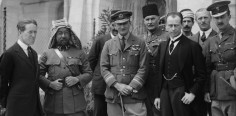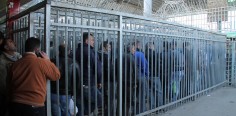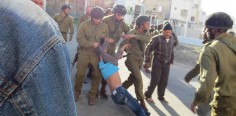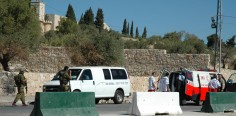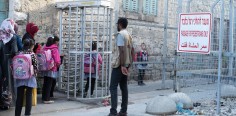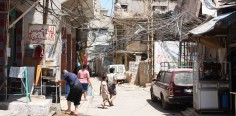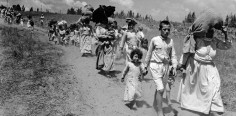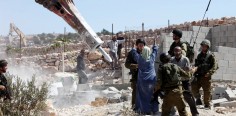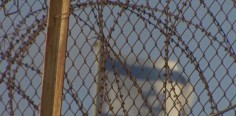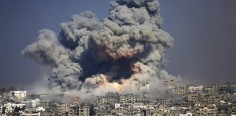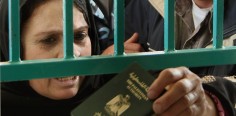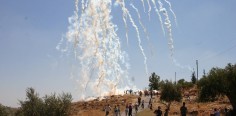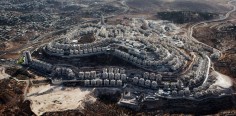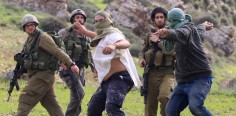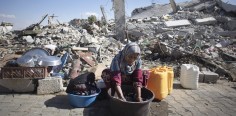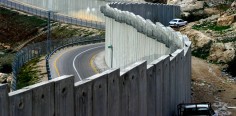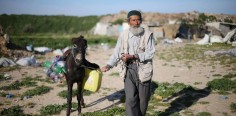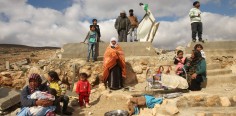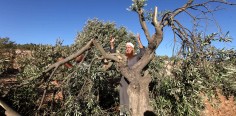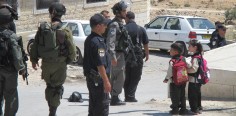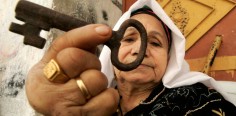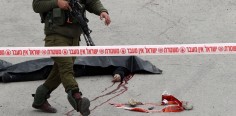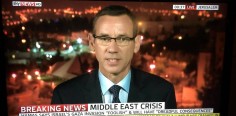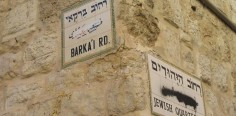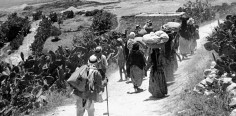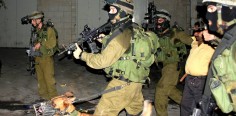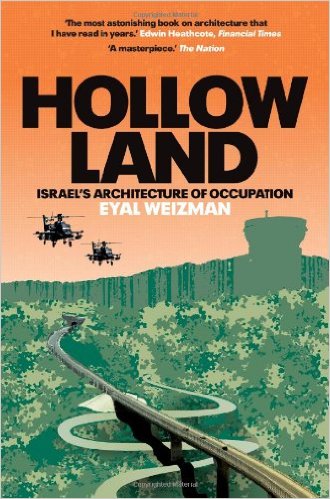CHECKPOINTS
IF MARY AND JOSEPH TRIED TO REACH BETHLEHEM TODAY, THEY WOULD GET STUCK AT AN ISRAELI CHECKPOINT.
FATHER IBRAHIM SHOMALI, CATHOLIC PRIEST
Imagine having to pass through military checkpoints several times every single day.
Imagine the aggression, the yelling, the abuse, the humiliation, the frustration and the manhandling by people that treat you like an animal.
Imagine waiting for hours under a scorching summer sun, a bone-penetrating winter or the pouring rain whilst power-intoxicated soldiers enjoy themselves at your expense, or sit back enjoying a meal and laughing as you submit yourself to their mercy.
Imagine being unable to predict when you’ll get to work, home or anywhere else you might be headed.
Imagine not knowing if you'll even get there — every time you go.
Imagine the frequent disappointment of your family, continually giving up hope of family breakfasts because you have to leave early enough to beat the checkpoint crowds or family dinners because you keep getting stuck at checkpoints.
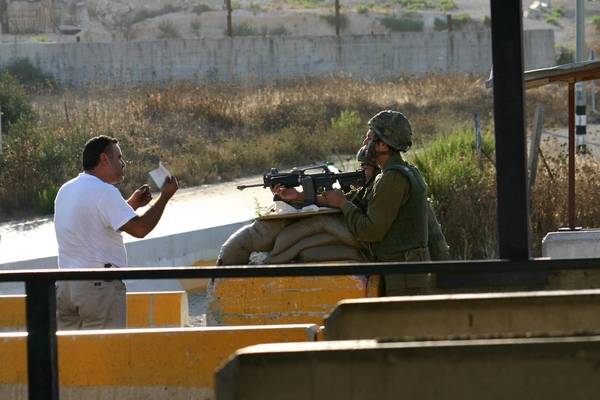
For the Palestinians, checkpoints, road blocks and other barriers are not something of imagination. In fact, the 500+ of them in such a small area is a part of their daily grind.
Israeli checkpoints can be open or closed without warning. They can be manned or unmanned. They can sophisticated or rudimentary. And they can appear out of thin air whenever the driver of an Israeli army jeep feels like stopping traffic to examine the vehicles which pass by.
And then, of course, there is the Separation Wall which has a few restricted points of entry/exit that double-up as permanent checkpoints.
And we're not just talking about checkpoints that separate 2 countries. Most of these checkpoints are inside Occupied Palestine such that Palestinians going from one town to another have to go through checkpoints. Or, in places like Hebron and East Jerusalem, where you find multiple checkpoints in the same area.
As for those who are lucky enough to visit East Jerusalem, Palestinians have to endure long lines, metal cage-like chutes, humiliating questions, strip-searches, denials of passage, beatings, arrests or worse.
The unpredictability which the checkpoints bring means many Palestinians who could have afforded to commute to a job or school are forced to drop out because of the many delays or denials. For farmers and traders, it means their produce and products often rot in the sun as they wait in line, sometimes for hours, as they try to transport them to their end-markets.
Mothers have to face all of this with infants and young children in tow. Young women in particular are particularly affected, especially with respect to their access to education, because their parents won't allow them to be groped and harassed by teenaged soldiers every day.
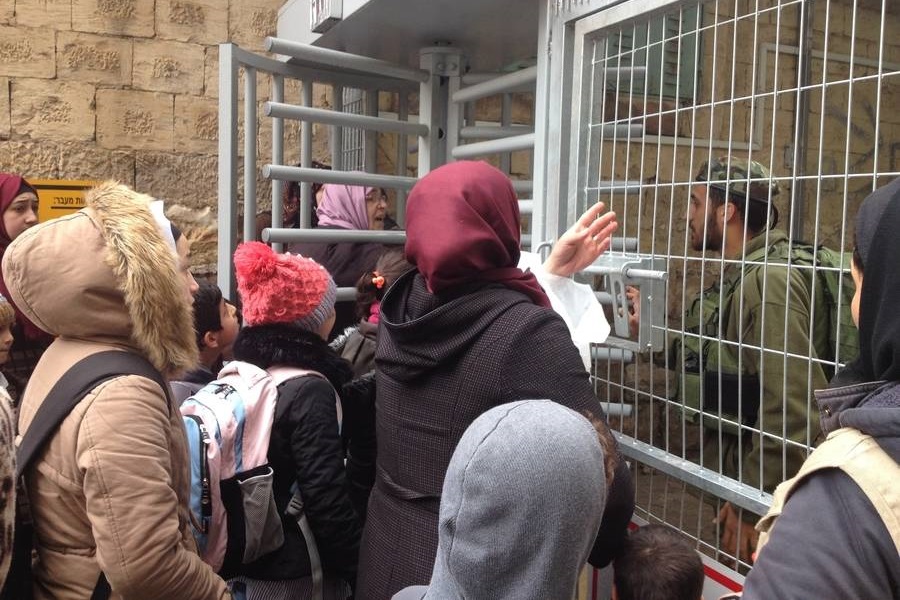
When she finished searching the woman, she took a whole container of dishwashing soap and, right in front of the Arab woman, poured a huge amount of it over her hands right and said, "Yuck, yuck, I can't believe I touched her, she’s so gross".
Israeli Soldier (Breaking the Silence)The Qalandiya checkpoint literally wrecks lives. We used to call it that, the "life-wrecker", me and another officer. Families were completely broken apart. Neighboring villages suddenly had this barrier running right down the middle. Mothers, fathers, totally separated.
Israeli Soldier (Breaking the Silence)When you first arrive in the territories, you think the purpose of the checkpoint is to catch terrorists. You're there to catch the bad guys. But that's not the purpose of the checkpoints. The purpose is to create arbitrariness which instills genuine fear in the Palestinians.
Israeli Soldier (Breaking the Silence)I remember we had a squad commander in the company who called himself “the doctor.” He really liked looking at people who came with X-rays. I also had to open it to see the name on the X-ray and whether it matched the ID. He’d look at the X-ray, peer at it as if he were deciding to do some kind of physical inspection. It was all a joke. Someone once said he had a headache, so the commander felt his skull and said, "No, no, you're okay." Something like that. It really cracked the soldiers up. I remember everyone talking about how cool that squad commander was.
Israeli Soldier (Breaking the Silence)Learn More
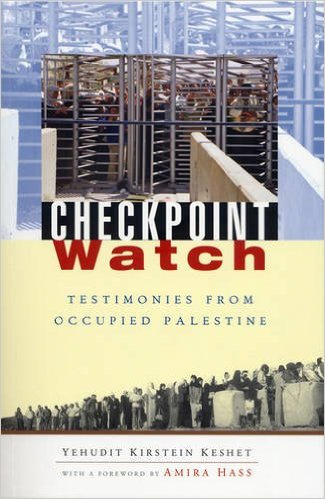
Checkpoint Watch explores Israel's curfew-closure policy in Occupied Palestine through the eyes of Israeli women that monitor human rights abuses. The book combines observers' daily reports from the checkpoints and along the Separation Wall, with analysis of the bureaucracy that supports the ongoing occupation.
View Resource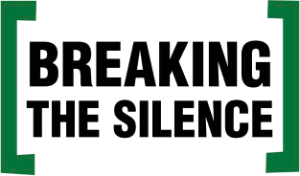
This is a deep search on breakingthesilence.org.li for "checkpoints". Breaking the Silence are veteran Israeli soldiers that have taken it upon themselves to expose the Israeli public to the reality of everyday life in Occupied Palestine.
View Resource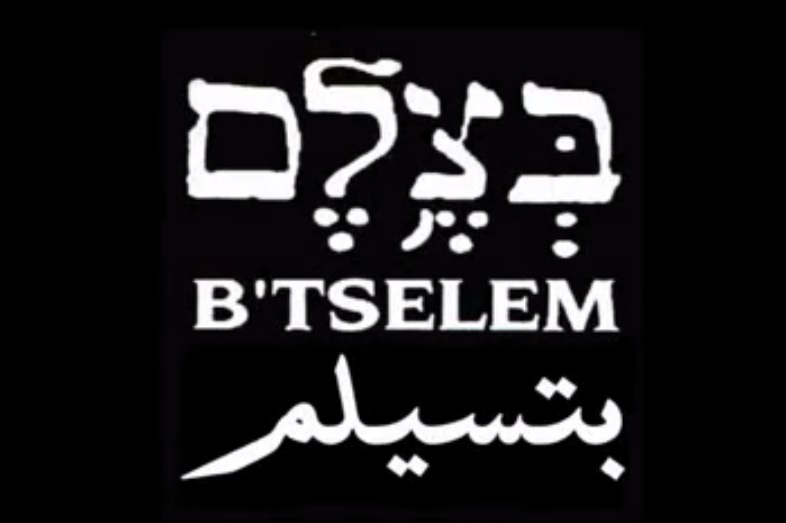
This is a deep search on btselem.org for "checkpoints". Btselem was established in February 1989 by a group of prominent academics, attorneys, journalists and Knesset members to document and educate the Israeli public and policymakers about human rights violations in the Occupied Territories and help create a human rights culture in Israel.
View Resource
